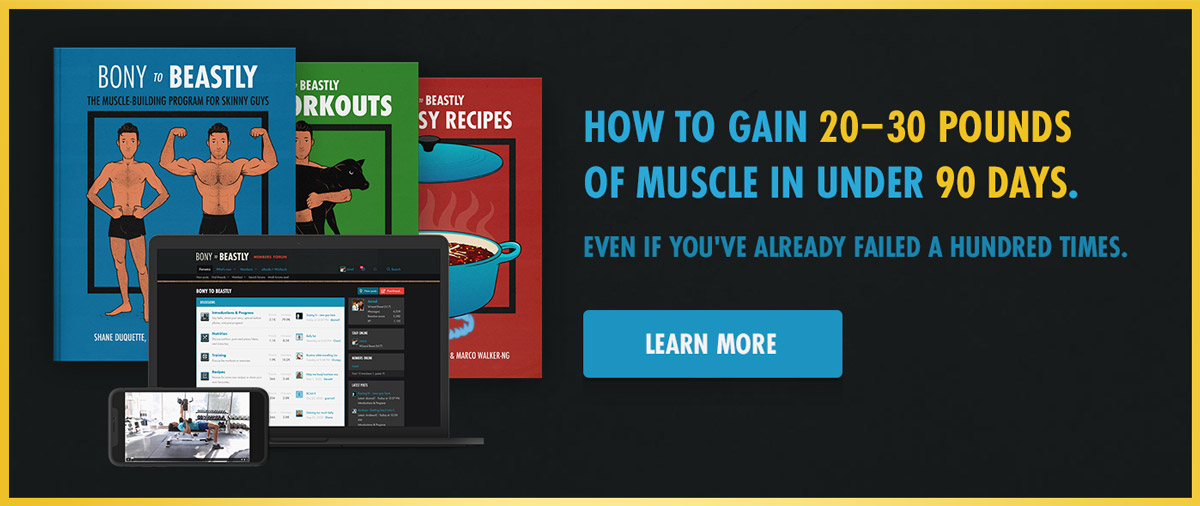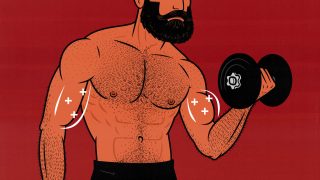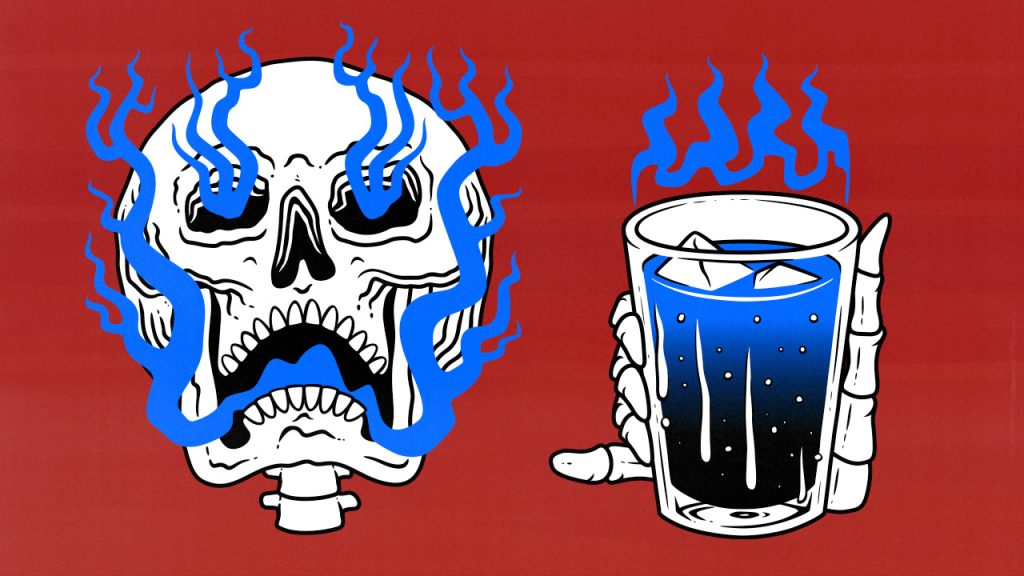
Are Pre-Workout Supplements Bad for You? (Full Breakdown)
Pre-workout supplements have had their share of controversies. Think of a crazy professional bodybuilder using all kinds of performance-enhancing drugs. Now imagine the stimulants that guy might be interested in. And then imagine him as the CEO of a supplement company. It’s easy to imagine how they might make a pre-workout that’s bad for you.
When I first started lifting, my favourite pre-workout was SuperPump by Gaspari Nutrition. Gaspari Nutrition was founded by Rich Gaspari, a professional bodybuilder. He got into trouble for secretly spiking his supplements with PEDs. He got sued and filed for bankruptcy, and the company is now a ghost of what it once was.
Jack3d was the other popular pre-workout. It was pulled from the shelves after a marathoner died with it in her water bottle. Her death was blamed on the ingredient that gave Jack3d its edge: DMAA, which is somewhat similar to meth. People loved it, but you’d be hard-pressed to argue it was healthy.
There are still enhanced bodybuilders running popular supplement companies, and they’re still doing shady things. For example, More Plates More Dates and Greg Doucette both recently got caught selling fake turkesterone. That isn’t the same as secretly spiking supplements with banned ingredients, but it’s not a good sign.
However, most pre-workouts are made by big corporations and marketed to the masses. The ingredients are tame, and the tubs probably contain what’s on the label. Are those pre-workouts bad for you?
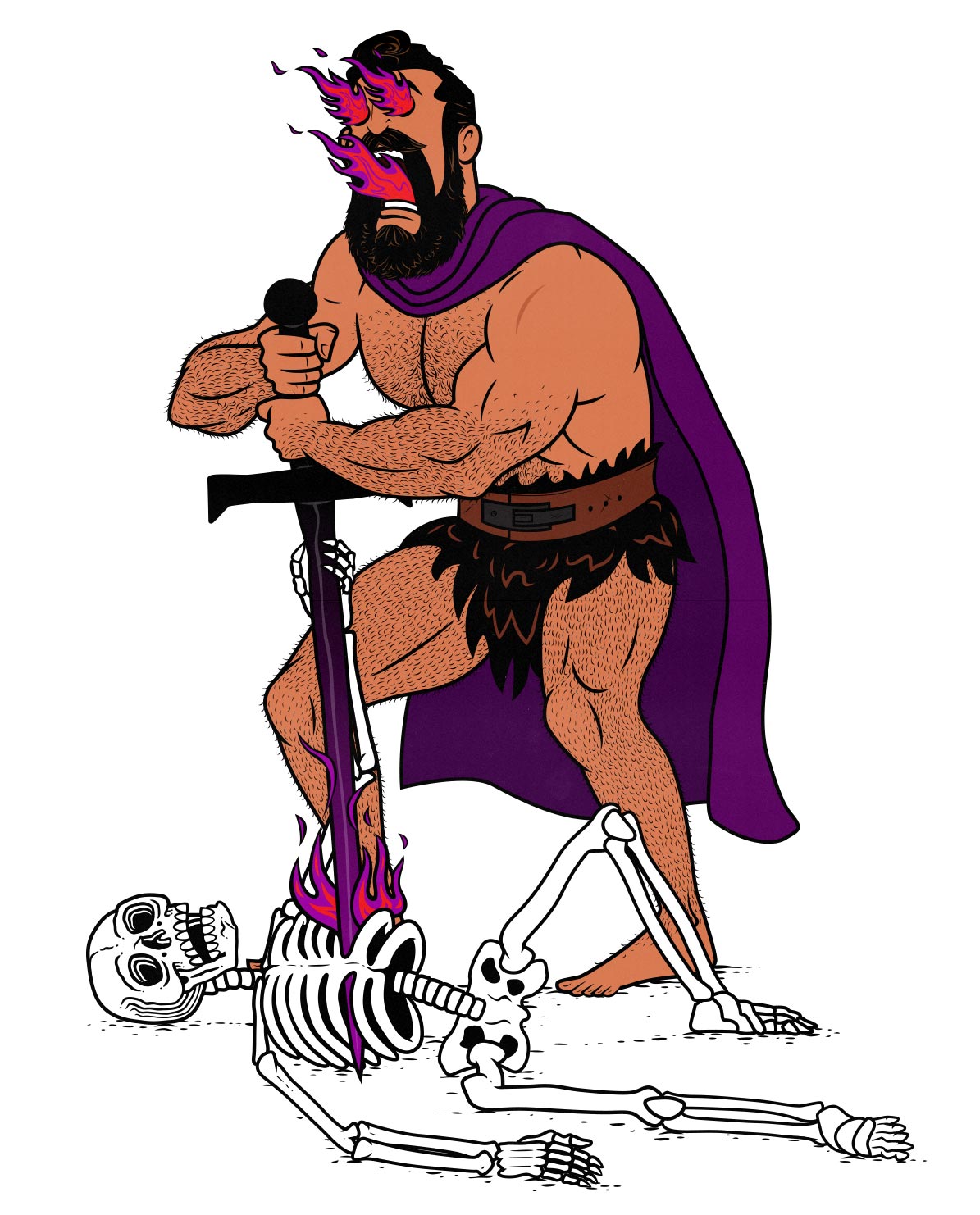
Most Pre-Workouts Have Gone Mainstream
Pre-workouts have become so popular that the big, bland corporations have stepped in, buying out the biggest brands. They’re marketed to the masses, so they tend to be tame, and they’re subjected to random third-party testing, so they tend to be accurately labelled. For example, Optimum Nutrition always does well when ConsumerLab randomly tests its supplements.
Some smaller companies (like Legion Athletics and Elemental Formulations) seem great. They’re founded by natural lifters, and their pre-workouts list higher doses of better ingredients, but I’m hesitant to officially recommend them after what happened with SuperPump.
If you play it safe and buy from the big brands, and if those brands give you what’s on the labels, then there isn’t much to worry about.
Breaking Down the Ingredients
If we focus on what’s in mainstream pre-workout supplements, most of the ingredients are either neutral or healthy. Let’s go through them one by one.
Caffeine
Some people handle caffeine better than others, but most people can have up to 400 mg per day without it affecting their health (study). In fact, caffeine seems to improve health. Mind you, most of that research comes from people who drink coffee and tea, which have nutritious phytonutrients.
- It could be that caffeine makes people more active, improving their health.
- Or maybe caffeine is usually consumed along with other healthy ingredients, improving health.
- Or perhaps the caffeine itself is healthy.
It’s hard to say for sure. But if you have less than 400 mg per day, you feel good, and you’re getting enough sleep, then there’s no reason to think it’s bad for you.
Regarding sleep, the more caffeine you drink, the earlier in the day you ought to drink it. Different people metabolize it at different speeds, but a good rule of thumb is to keep your pre-workout at least 9 hours away from your bedtime.
I didn’t know that. I got into the habit of having pre-workouts before my 6 PM workout. I’d feel wired until 3 AM, sleep poorly, and wake up tired, making me feel like I needed another pre-workout.
I love pre-workouts and energy drinks (and basically anything with caffeine in it), so I started doing my workouts before work instead of afterwards. A more reasonable person might find a pre-workout without stimulants. They exist, though I doubt there’s any joy in them.
Creatine
Creatine is the most powerful muscle-building supplement. It allows you to produce more ATP, helping you pump out an extra rep, increasing your training volume, and thus stimulating more muscle growth. Creatine also causes some cell swelling and water retention, allowing you to build muscle faster. Overall, you might gain around 33% more muscle during your first few months of taking it.
There’s nothing unhealthy about creatine. It’s been studied for several decades now, and all of the side effects are mild and positive (meta-analysis). For example, it might slightly improve cognition. The only bad thing is that you can get stomach cramps if you have too much creatine with too little water. If that happens, split the dose up or mix it into more water.
However, there’s no reason to put creatine in a pre-workout. You should have 5 grams every day, not a few grams before exercising. I suspect it’s in there so that supplement companies can say their pre-workouts improve muscle growth.
Beta-Alanine
Beta-alanine is similar to creatine but less effective and less relevant. Some research shows it can improve performance during sets that last for 1–10 minutes (meta-analysis). That might help with some cardio routines, but it probably won’t help you lift weights or build muscle.
Like creatine, beta-alanine is something you should take every day. It doesn’t belong in a pre-workout. Worse, it can cause paresthesia, which is harmless but feels like being swarmed by spiders (study). Some people enjoy that tingling horror, but I don’t, so I try to find pre-workouts with barely any beta-alanine in them.
Still, as much as I hate it, and despite my best efforts, I haven’t been able to find anything unhealthy about beta-alanine.
Pump Ingredients (Citrulline, Betaine, Arginine)
Citrulline, betaine, and arginine are vasodilators. They increase blood flow, improving your exercise performance and giving you greater muscle pumps. Outdated supplements use arginine, which doesn’t work very well. Most new supplements use citrulline malate and/or betaine, which seem to work much better.
Vasodilators seem to be pretty healthy. You could get even greater health benefits by eating nuts, spinach, watermelons, carrots, beets, and garlic (study), but you can add 8 grams of citrulline malate on top of a good diet, and it tastes fantastic, so why not?
Most brands use 1–2 grams, which probably won’t do very much. But using too small of a dose isn’t unhealthy, just ineffective.
Branched-Chain Amino Acids (BCAAs)
When you digest protein, you break it down into amino acids, which you can use to build muscle. If you supplement directly with amino acids, you don’t need to waste any time breaking your protein down, giving you the benefits right away. That can be useful when you’re training first thing in the morning on an empty stomach, especially if you aren’t planning to eat right afterwards.
The branched-chain amino acids (leucine, isoleucine, and valine) are thought to be especially good for building muscle. There’s nothing unhealthy about them, though you could argue you’d get even more benefits from consuming whole-food protein sources like chicken, fish, nuts, seeds, and whole grains.
Flavours and Sweeteners
The flavours and sweeteners in pre-workouts are controversial. They’re processed, nutritionally empty, and taste much too sweet to be good for you.
However, there isn’t much evidence to suggest that flavours and sweeteners are harmful when consumed in reasonable doses, such as the doses you’d find in a scoop of protein powder or pre-workout (study). Anything you eat can change your gut microbiome, but it’s unclear whether the changes from eating sweeteners are good, bad, or neutral.
Most supplement companies use artificial flavours and sweeteners. Legion’s Pulse pre-workout uses natural ones (and has great doses of good ingredients). The downside of natural sweeteners is that they aren’t proven to be any healthier, and some of them can cause excessive gas.
Secret Banned PEDs
The PEDs that are secretly slipped into some pre-workout supplements can definitely be bad for you, which is why so many pre-workouts have been banned and pulled off the shelves. Some nefarious pre-workout companies are surely still out there.
If you want to play it safe, you can get your pre-workouts from large companies that get randomly tested by third-party companies like ConsumerLab. Optimum Nutrition is the most obvious of those companies, and they always do well. I love their protein powders, but their pre-workout isn’t anything special.
I prefer to get my pre-workouts from smaller companies run by natural lifters who seem to care about health. Legion is a good example. Elemental Formulations is another. We aren’t affiliated with either of those companies. I don’t know for sure if their supplements contain what’s on the label.
Accidental Contamination
There’s a risk of contamination with almost every food. It’s not unique to supplements or pre-workouts. For example, most chocolate has some lead in it. I don’t think any of the ingredients in pre-workouts are especially likely to be contaminated, but I can’t say for sure. It isn’t uncommon for health supplements to be contaminated.
Water
You’re supposed to mix pre-workouts with water. Some people dry scoop, but you probably shouldn’t. That could be bad for you in several ways, and there’s no benefit to it anyway.
Water improves energy levels and workout performance. It’s great for you, as long as you don’t have too much, and as long as it isn’t contaminated. If you don’t drink water when you aren’t thirsty, you probably won’t accidentally have too much. If your water is contaminated, you can use a water filter pitcher.
Verdict
When I was a skinny, sedentary art nerd, pre-workouts and energy drinks helped me fall in love with lifting weights. Drinking them felt like drinking life itself. I craved them, which meant I craved the action that came right before working out, reinforcing the exercise habits I was struggling to build.
That’s the biggest benefit of a pre-workout. You’ll probably love it, crave more of it, and thus yearn for your next workout. You’re adding pleasure to an activity that’s great for you, helping you build good habits.
Some pre-workout ingredients are mildly healthy. Caffeine, creatine, amino acids, and citrulline malate can all be good for you, especially if they help you get even fitter, build more muscle, or lose some fat.
If you buy your pre-workout from a reputable brand, follow the recommended dosage, and don’t have it too late in the day, there’s no reason to think it would be bad for you.
I limit myself to three pre-workouts or energy drinks per week, but it isn’t necessarily unhealthy to have one every day. The main issue is that you’ll acclimate to it, losing out on some of the benefits of the caffeine.
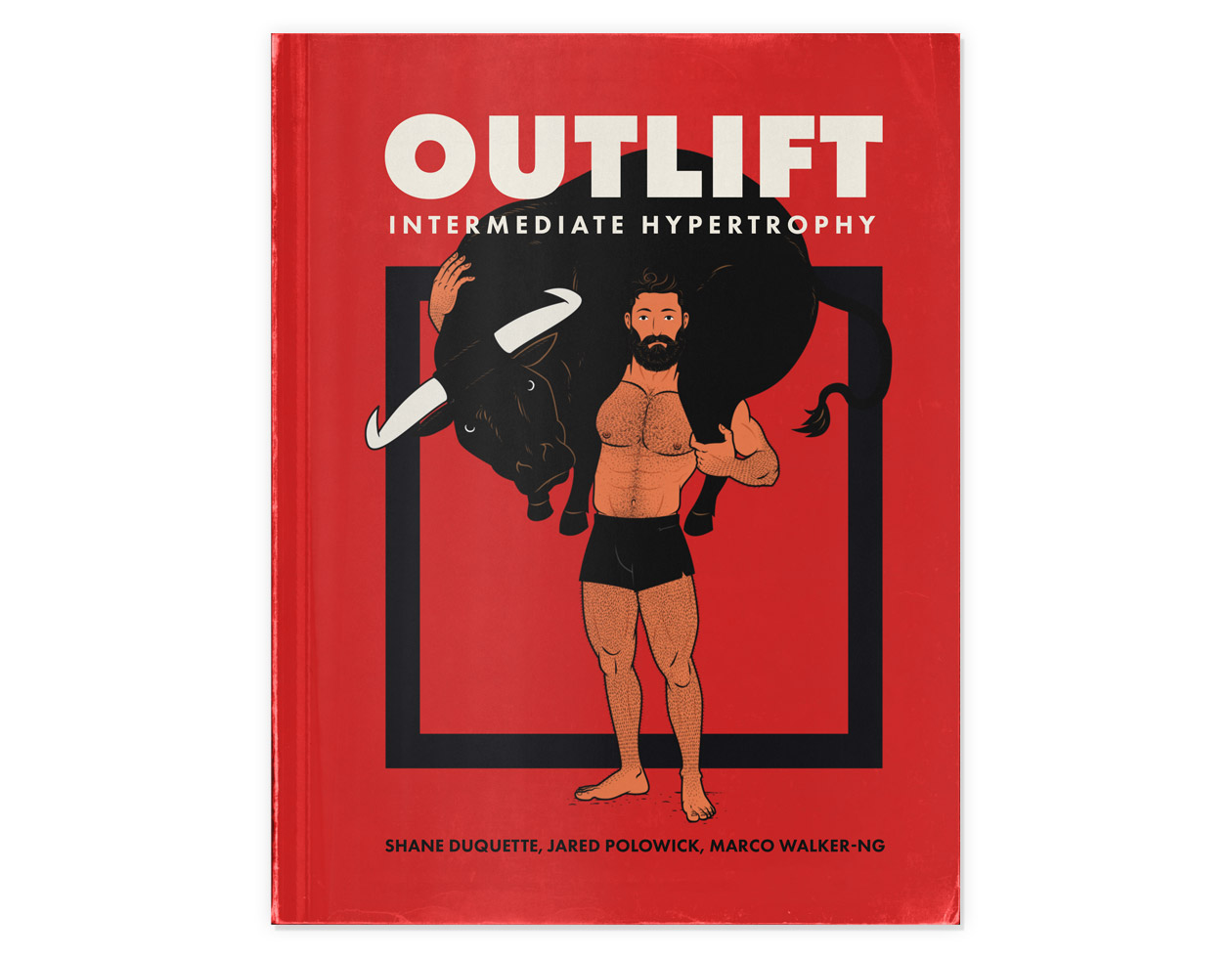
Alright, that’s it for now. If you’re new to lifting weights, check out our Bony to Beastly (men’s) program or Bony to Bombshell (women’s) program. If you’re already an intermediate lifter, you might like our Outlift Intermediate Hypertrophy Program.
If you have any questions, drop them below. I’ll answer all of them.
